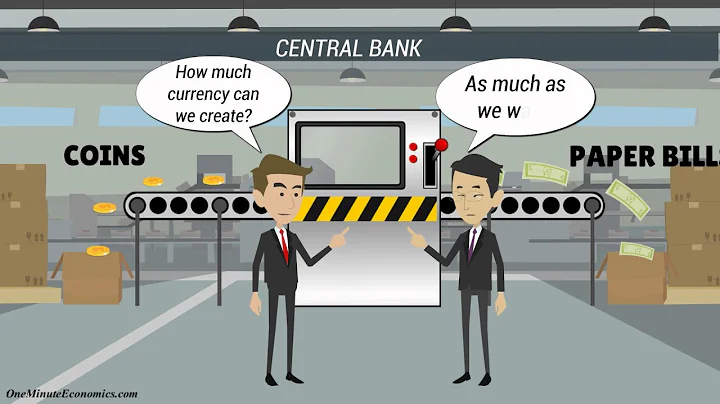Are commercial banks often called full service banks?
Commercial Banks are often called full-service banks because they offer a wide range of financial services like checking accounts, savings accounts, individual and business loans, and other services.
Commercial banking, another name for corporate banking, offers banking products and services to businesses, corporations, institutions and sometimes governments.
A commercial bank is a financial institution that provides services like loans, certificates of deposits, savings bank accounts bank overdrafts, etc. to its customers. These institutions make money by lending loans to individuals and earning interest on loans.
Definition. Commercial banking is a type of banking that provides services for businesses, government agencies, and institutions like colleges and universities to help them grow and profit. Commercial banks make money mainly by loaning money to businesses and earning back interest and fees from these loans.
Definitions of full service bank. a financial institution that accepts demand deposits and makes loans and provides other services for the public.
A commercial bank is the most common depository institution which lends, issues, borrows, and protects money. Commercial banks offer many services to people such as checking and savings accounts, issuing loans and credit cards, and providing customers with financial advice.
Commercial banks are generally stock corporations whose principal obligation is to make a profit for their shareholders. Basically, banks receive deposits, and hold them in a variety of different accounts; extend credit through loans and other instruments: and facilitate the movement of funds.
But commercial banks also have business-specific offerings like payment processing, lockbox services, international trade support, letters of credit, payroll support, asset-based loans, and working capital lines of credit. Not all businesses need those added services, of course.
Commercial banks offer many services, like bank guarantee, locker facility, collection on behalf of customers etc whereas non commercial banks do not provide such services. Instead they stick on to the traditional function of banking i. e. accepting deposits and advancing loans.
What Is a Commercial Bank? The term “commercial bank” refers to a financial institution that accepts deposits, offers checking account services, makes various loans, and offers basic financial products like certificates of deposit (CDs) and savings accounts to individuals and small businesses.
What is the goal of the commercial bank ___________?
The main objective of commercial banks is to maximize their profit. To do so, it must fulfill the stockholder's wealth by maximizing income generated from its monetary products like loans, deposits, and asset facilities.
- Accepting deposits.
- Granting loans and advances.
- Agency functions.
- Discounting bills of exchange.
- Credit creation.
- Other functions.

Central bank can be called the apex bank, which is responsible for formulating the monetary policy of an economy. Commercial banks, on the other hand, are those banks that help in the flow of money in an economy by providing deposit and credit facilities.
For instance, American Express Bank, Hong Kong and Shanghai Banking Corporation (HSBC), Standard & Chartered Bank, Citibank, and more such banks.
The key difference between retail and commercial banking is who the products are designed for. While retail banks service individuals, communities, small businesses, and families, commercial banks focus on larger companies, government entities, and institutions.
Definition of full service bank
Services typically found in full service banks include consumer credit, mortgage financing, commercial lending, trust services, and corporate agency services, such as funds transfer and securities registration.
Universal banking combines the services of a commercial bank and an investment bank, providing all services from within one entity. The services can include deposit accounts, a variety of investment services, and may even provide insurance services.
- Checking Accounts. An account at a financial institution that allows for withdrawals and deposits. ...
- Savings Accounts. ...
- Money Market Accounts. ...
- Certificates of Deposit. ...
- Mortgages. ...
- Home Equity Loans. ...
- Auto Loans. ...
- Personal Loans.
What is the No. 1 bank in America? J.P. Morgan Chase is the number one bank in America in terms of total assets held, according to the Federal Reserve.
Royal Bank of Canada maintains its ranking as the World's Safest Commercial Bank for 2023, and Canadian banks take 6 of the top 16 positions and 7 overall. Singapore lands three banks in the top five, and the United Sates is represented by 8 banks, the most of any individual country.
Why are commercial banks better?
A commercial bank is an easy and flexible source of accepting and withdrawing money. These are the economical source of funds as it manages deposits and withdrawals at a low cost and involves no hidden cost. It generally provides the loan against some security.
- Security. The whole point of putting your money in the bank is to keep it safe, right? ...
- Convenience. Knowing your money is safe in your account doesn't count for much if you have trouble accessing it. ...
- Rates. ...
- Fees. ...
- Technology. ...
- Customer Service.
- Best online bank: Ally Bank.
- Top online bank: TIAA Bank.
- Top online bank: Quontic.
- Top online bank: LendingClub.
- Top online bank: CIBC USA.
- Top online bank: First Internet Bank of Indiana.
- Top online bank: Rising Bank.
- Top online bank: Varo Bank.
Only a small portion of your deposits at a bank are actually held as cash at the bank. The rest of your money (the majority of the bank's assets) is invested by the bank into vehicles such as consumer or business loans, government bonds and credit cards. Borrowers have to pay the bank back with interest.
- The funds received from the commercial banks are of short duration and the procedure of obtaining funds is a time taking affair as there is a lot of verification that needs to be done from the bank end.
- The bank can set difficult conditions for granting of loans.